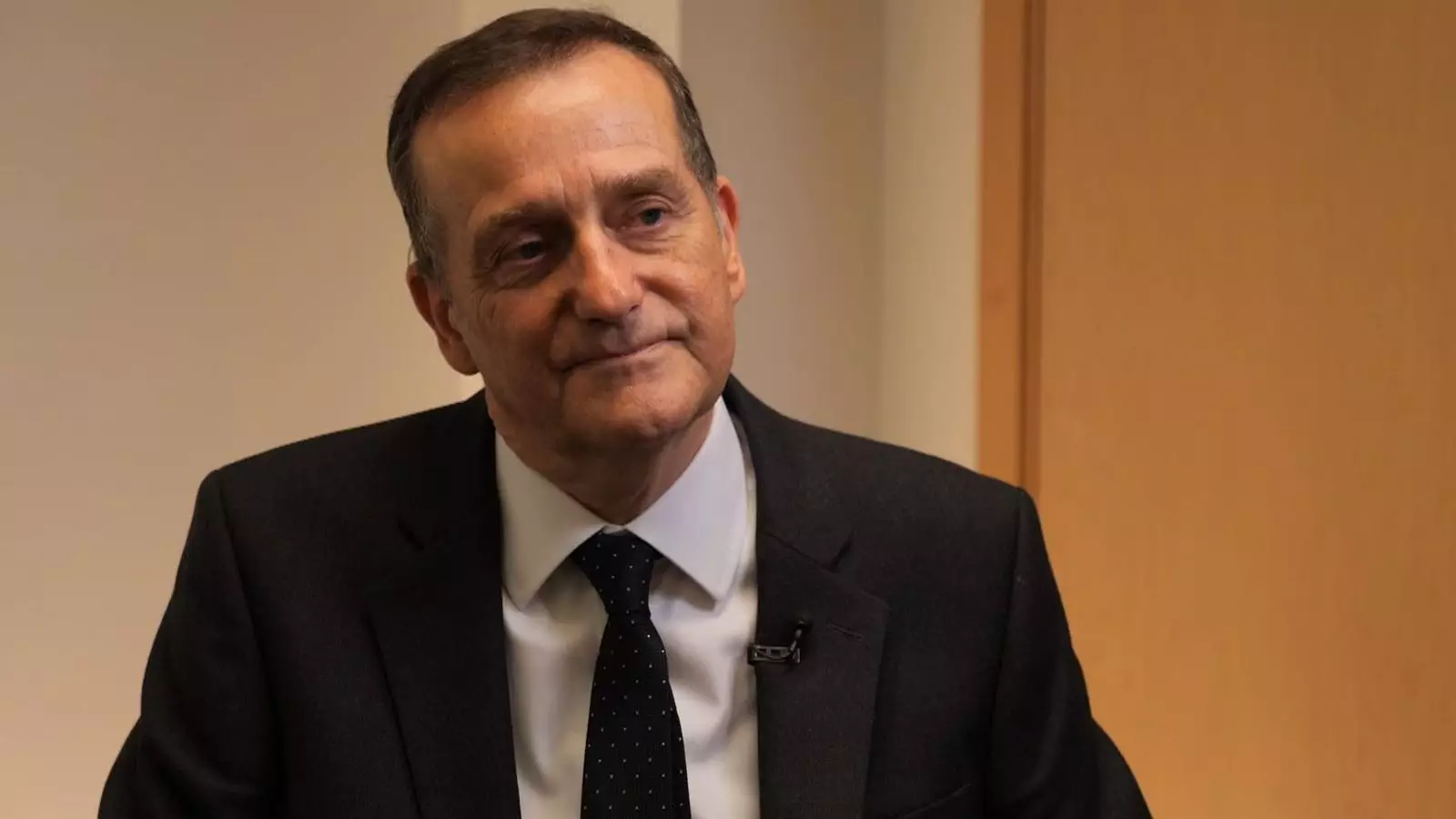The backlog of rape and sexual offense cases in England’s crown courts has reached a critical juncture, provoking strong condemnation from the country’s top legal officials. Stephen Parkinson, the newly appointed Director of Public Prosecutions, recently labeled the situation as “totally unacceptable.” This stark pronouncement underscores the gravity of delays that victims face, which not only jeopardize the pursuit of justice but also significantly diminish the morale of victims hoping for closure. For many survivors, the protracted wait often proves so arduous that it hinders their ability to move on with their lives, trapping them in a cycle of uncertainty and distress.
The implications of these delays extend well beyond mere numbers. Every individual case represents a survivor who is forced to endure months—if not years—of waiting. According to data, adult survivors of rape are currently facing an astonishing average of 710 days from the point of reporting to the conclusion of courtroom proceedings. Such a timeframe can exacerbate feelings of isolation and vulnerability among survivors, leading many to question their resolve and, in some instances, deter them from pursuing justice altogether.
In an effort to combat these delays, Parkinson has introduced a survivor support program designed specifically for individuals pursuing cases related to rape and serious sexual offenses. This initiative is notable not just for its intention but also for the proactive steps it incorporates, including the employment of 40 victim liaison officers. Acting as a vital link between survivors and the legal system, these officers are tasked with guiding survivors through the intimidating pre-trial landscape, providing a more personalized point of contact along the way.
While the initiative has garnered attention, it also raises questions about its overall effectiveness. Many survivors are likely to feel that improved communication and support are essential; however, these measures might only serve as a temporary lifeline amidst a growing systemic issue. It becomes evident that while increased communication can ease the immediate concerns of survivors, it does little to eliminate the core problem: the backlog itself.
During interviews, Charlotte Caulton-Scott, who leads the rape and serious sexual offenses unit at the Crown Prosecution Service (CPS), acknowledged that historically, the organization’s engagement with victims has not met adequate standards. She expressed a commitment to altering this perception, emphasizing a shift toward a more supportive and empathetic approach. This recognition is a step in the right direction; however, effective change requires more than just acknowledgment and the implementation of support mechanisms.
Critics, including advocates from charities supporting survivors, have raised concerns that merely enhancing support structures will fall short without addressing the fundamental causes of the backlog. Raffy Elliston, an independent sexual violence adviser, articulated that while initial improvements are promising, they often feel superficial in light of the overwhelming scale of the problem. The survivor community calls for more substantive measures, such as the establishment of specialized courts, an increase in judges, and a ban on detrimental last-minute adjournments that prolong suffering for survivors.
It is crucial that the legal system undergoes a comprehensive transformation to ensure that it not only serves as a mechanism for enforcing laws but also provides a compassionate and timely response to the needs of survivors.
The current situation demands urgent action and thoughtful reform. With projections indicating that the backlog of criminal cases may escalate to 80,000 by March 2025, it becomes critical to recognize the enormity of this issue not only as a statistic but as a human crisis. Each case represents a life impacted, a voice that demands to be heard, and a journey toward justice that should be honored rather than hindered.
For the newly initiated support program to be deemed successful, it must be accompanied by broader legal reforms that target the very roots of systemic delays. The need for specialized resources, trained personnel, and judicial streamlining is paramount. Public discourse should shift from mere acknowledgment of the issues to a rallying call for sustained improvement, ensuring that the path to justice is not only accessible but also deserves genuine respect and urgency.
As society witnesses an increased focus on the protection and support of sexual offense survivors, it is imperative that these issues are addressed holistically, with a commitment to enacting change that resonates deeply throughout the judicial system. The current moment presents both a challenge and an opportunity—an opportunity to redefine how the legal system interacts with some of its most vulnerable participants and to ensure that justice is pursued swiftly, compassionately, and effectively.

Leave a Reply